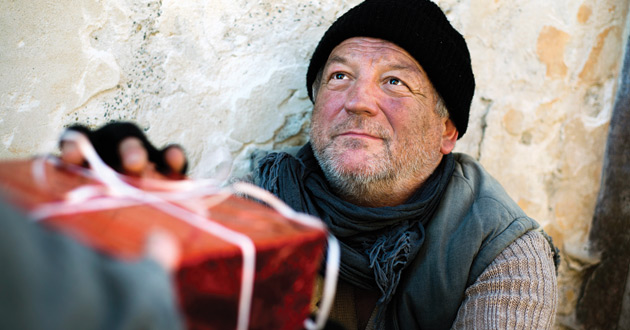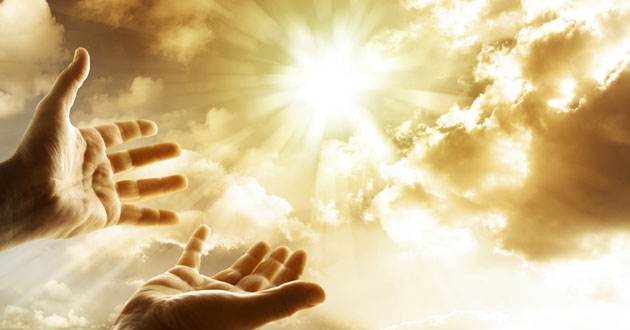Living Bethlehem

My friend Don told me about a time during the Christmas season several years ago when he and his wife loaded their two little girls into their car to drive from their small Ohio town to spend the holiday with his parents in Iowa. It was a freezing day, and after a few hours he pulled the car into a highway rest stop so everyone could stretch their legs.
As Don approached the rest room, he saw a sign taped to the door. It was written in pen, on the back of a remnant of a cardboard box. It said “We’re stranded, and want to get home for Christmas. Could you help us?” The sign described the car these people were in.
“I thought about it for a minute,” Don told me. “It sounded like a scam. But what if it wasn’t? It was so cold that day.”
Don turned around and looked for the car. He saw it immediately. It had seen better days. When he got to the car he noticed that there was a man and a woman in the front seat, and a sleeping baby in the back. The man behind the wheel rolled his window down, and Don handed him a $10 bill. What the man said shocked my friend.
“Thanks, Don,” the man said.
“Did I know him from somewhere?” Don wondered, shaking his head as he told me about it. “Was he a member of my church? A high school acquaintance? Did he hear my wife call my name from our car? I don’t know.”
He couldn’t explain it. But since it involved a traveling couple with a baby at Christmas time, he said, “It felt as if Bethlehem was breaking through my distractions.”
If we operate from the premise that God is always breaking through, from the invisible to the visible, in every moment, then we discover that our everyday tasks have meaning and connections beyond the tasks themselves. Our everyday tasks are ways that we can participate with what God is already doing.
One of the ways we do this is by looking at the people around us—the ones we typically ignore—and saying, “I see you. I notice you. You matter.” We are the innkeeper in Bethlehem who makes room.
We really don’t need much in order to do this. Jesus sent his followers out with nothing except some instructions.
As author Barbara Brown Taylor says, God calls us is to be a provider of God’s love, knowing that “there is really only one provider, who sends us out with nothing at all and with everything we need: healing, forgiveness, restoration, resurrection. Those are the only things we really have to share with the world, which is just as well, since they are the only things the world really needs.”
One night, when my kids were little, my wife and I were out to an event with them, and as we were driving home, my kids declared that they were hungry. We were a few miles from our house, and I argued the point that it would make more sense (and be less expensive) to eat something when we got to our own kitchen.
But the three other people in the car pointed out that we were about to pass a fast food drive-thru, and that we should stop there. Overruled, I pulled in. It was about 9 p.m., and as I drove toward the drive-thru lane, the headlights briefly illuminated a homeless man stretching out a blanket under a tree on the other side of the parking lot. We ordered our food, and I asked for a few extra hamburgers and coffee in a separate bag.
“Suddenly hungry?” my wife said.
“No, I just need to do something.”
I pulled out of the drive-thru lane and back to the parking lot. I brought the bag to the man I had seen under the tree.
“You looked hungry,” I said.
That night, as I was putting my daughter to bed, I asked her what her favorite part of the day was.
“Watching you give that man some supper,” she said. “Homeless people usually scare me. I never thought they might be hungry.”
It was the best part of my day, too.
Bethlehem is breaking through every moment of every day. Christ continues to arrive in the least likely places. What do you see? Where do you see it? And, more to the point, Who are you seeing?
— by Dean Nelson
Nelson directs the journalism program at Point Loma Nazarene University in San Diego. His book on seeing God in everyday life is God Hides in Plain Sight: How to See the Sacred in a Chaotic World.





